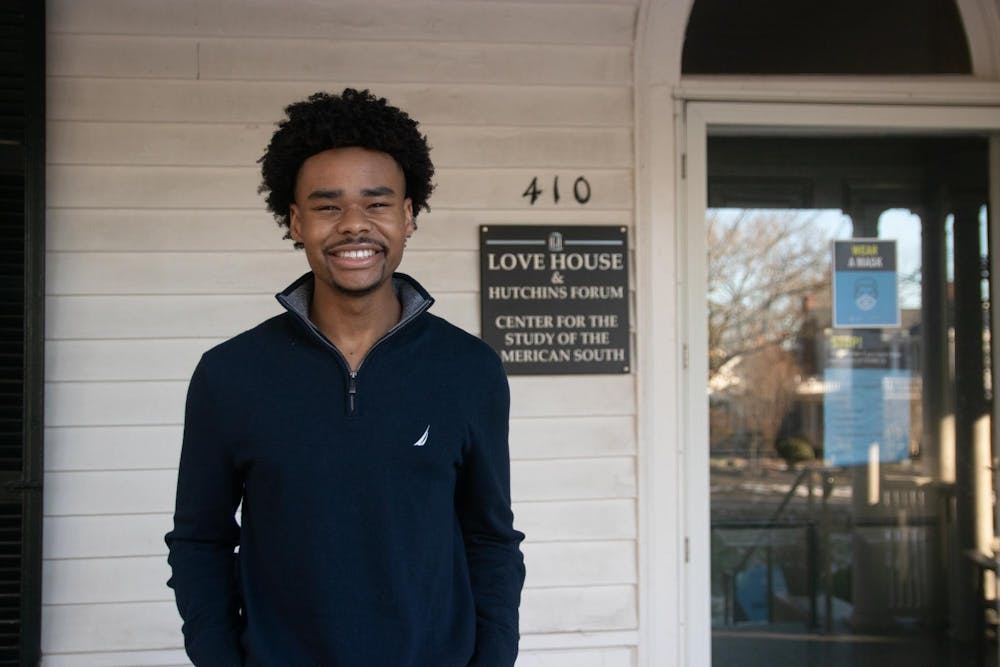“I am really interested in and excited by the use of oral history archives and asking questions about what can happen after an interview lands in an archive,” Newman said.
Through SOHP, Newman specifically researches how to best preserve the stories of Warren County, a North Carolina county that received national attention in 1982 when Warren residents protested the state government pouring 6,000 truckloads of toxic soil into a local hazardous waste landfill.
When the PCBs — highly toxic industrial compounds that pose serious health risks — were found in the soil, Warren residents peacefully took to the streets in nonviolent protest marches specifically relating to the PCBs' risk to Warren County's water supply.
Newman is working with another field scholar, Anna Hamilton, as well as UNC Wilson Library staff and the Warren County Environmental Action Team on the project.
“We are working with the environmental action team on what oral history will look like as part of their 40th-anniversary celebration or commemoration of the Warren County protests and the birth of the environmental justice movement," Newman said.
In addition to her work in Warren County, Newman is also passionate about working with undergraduate students and interns at the SOHP.
Research project: Health care relationships, focusing on Chatham County
Wilson's work was inspired by the Stories to Save Lives project from his first-year class. However, when looking at the interviews for Chatham County in that project, he noticed they weren't representative of the county.
"In majority of the interviews they conducted, they are in the most white and affluent areas of Chatham County," he said. "I felt like if this was really to capture what health and illness looks like for rural communities, why are they only going to an area that isn’t very demographically representative?"
Wilson's project, which he began this semester, aims to address this issue of representation.
“For my project, my main focus was trying to get more accurate representations (of health care and illness) in Chatham County by focusing on not just racial and socioeconomic inclusivity but also geographic because Chatham County is a very interesting county,” Wilson said. “As you come more to the east, that’s where you see a greater trend in socioeconomic status, whereas if you go to the west, it’s opposite in development and racial lines, all those are really blurred.”
Research project: Tenure experiences of Black and Indigenous women on campus
To get the day's news and headlines in your inbox each morning, sign up for our email newsletters.
Junior Patrice McGloin, another current SOHP intern, has been fascinated with the idea of oral history from a young age.
McGloin has always been interested in storytelling, she says, and specifically in the ways that people preserve the stories of elders.
“I grew up in a space that really valued community and especially looking up to older people," McGloin said. "Not only as facets of the community but also people that have knowledge that you can’t get just by being around or from a book or something like there’s a special kind of knowledge that comes from lived experience.”
McGloin’s research focuses on telling stories of Black and Indigenous activism on campus, specifically Black and Indigenous women’s pursuit of tenure at UNC.
She said she centered her project on tenure in light of the Board of Trustees’ initial failure to grant tenure to Pulitzer Prize-winning journalist Nikole Hannah-Jones last summer.
“What ended up happening sort of during that process is that I realized a lot of the work I was doing was important, for sure,” McGloin said.
Oral history and the research that takes place at SOHP spans several time periods, social and political issues and communities. However, McGloin said, the mission remains the same.
“I really do believe that all of the work we’ve done in this cohort — and all the work that we will do — is a way of broadening the narrative that we have on this campus and in this community,” McGloin said. "It allows for a more multifaceted understanding of history and of the communities that we belong to, and that seems to be the forefront of a lot of the work that SOHP does.”
@neptunejade
university@dailytarheel.com | elevate@dailytarheel.com
CLARIFICATION: An earlier version of the article misrepresented the scope of Junior Patrice McGloin's research. The story has been updated to reflect that her research focuses on telling stories of Black and Indigenous activism at UNC-Chapel Hill. The Daily Tar Heel apologizes for this error.



